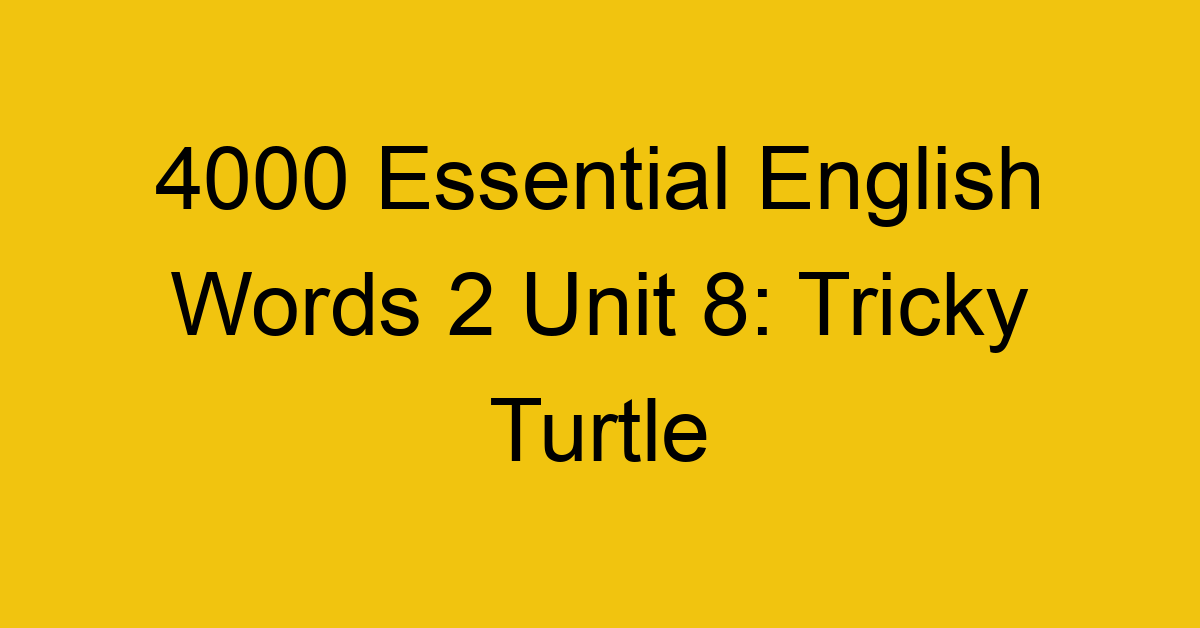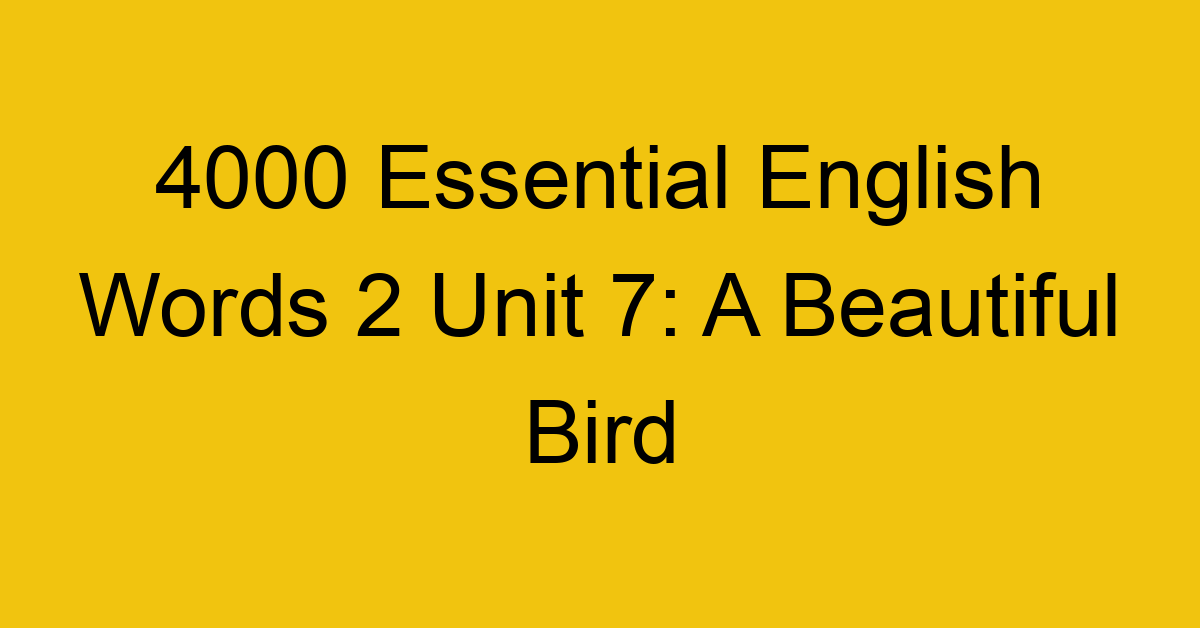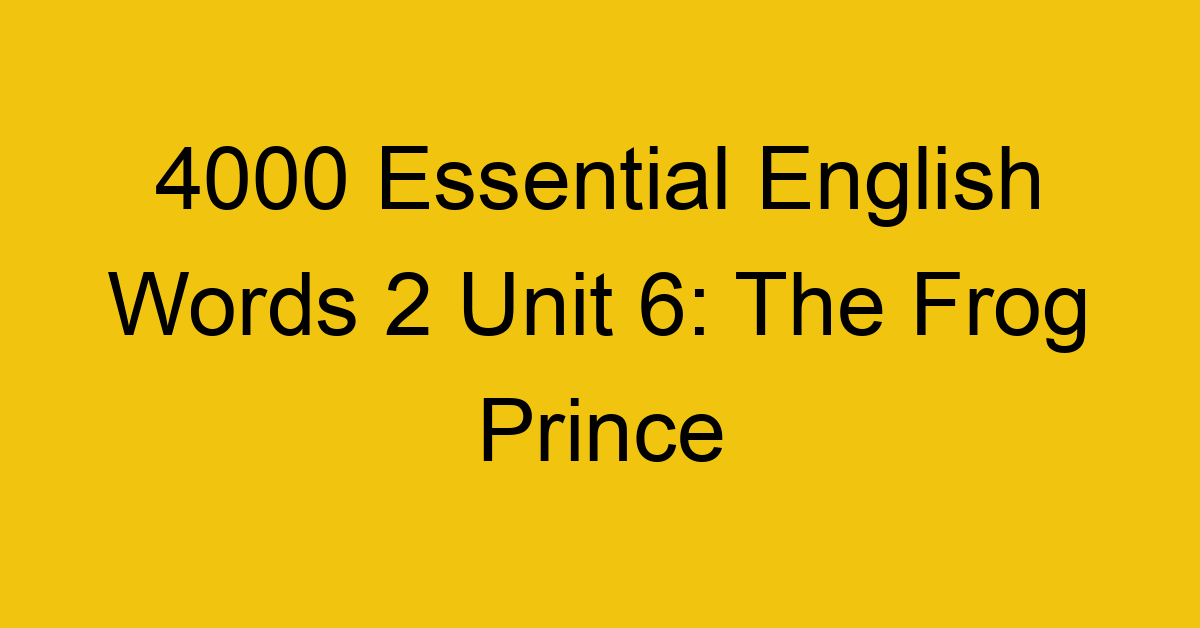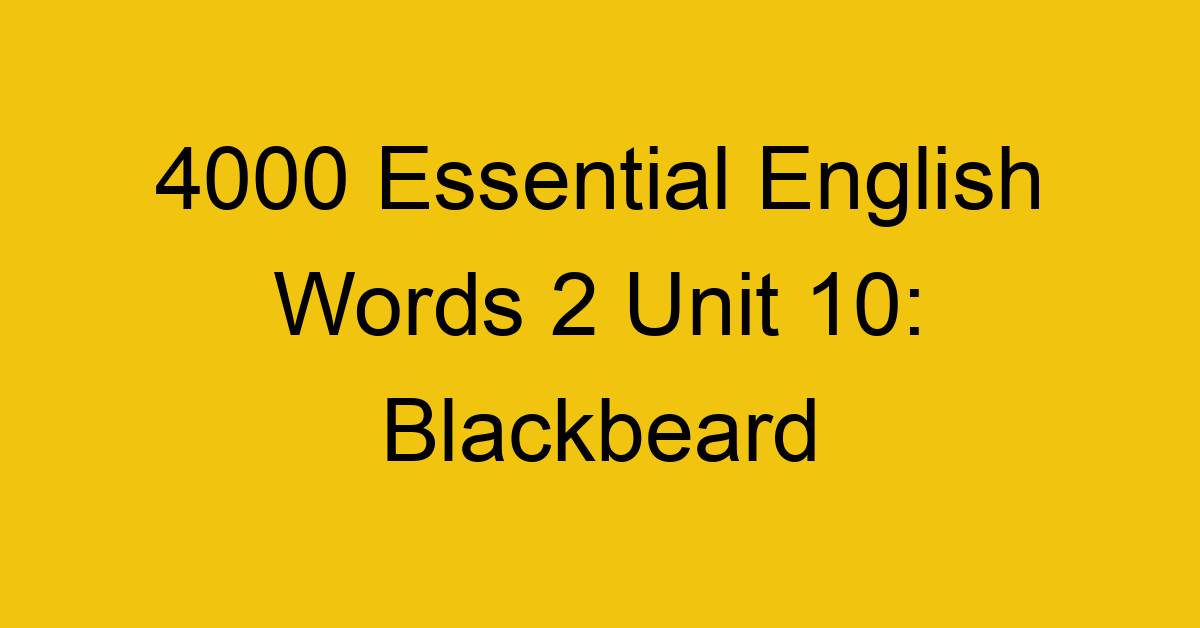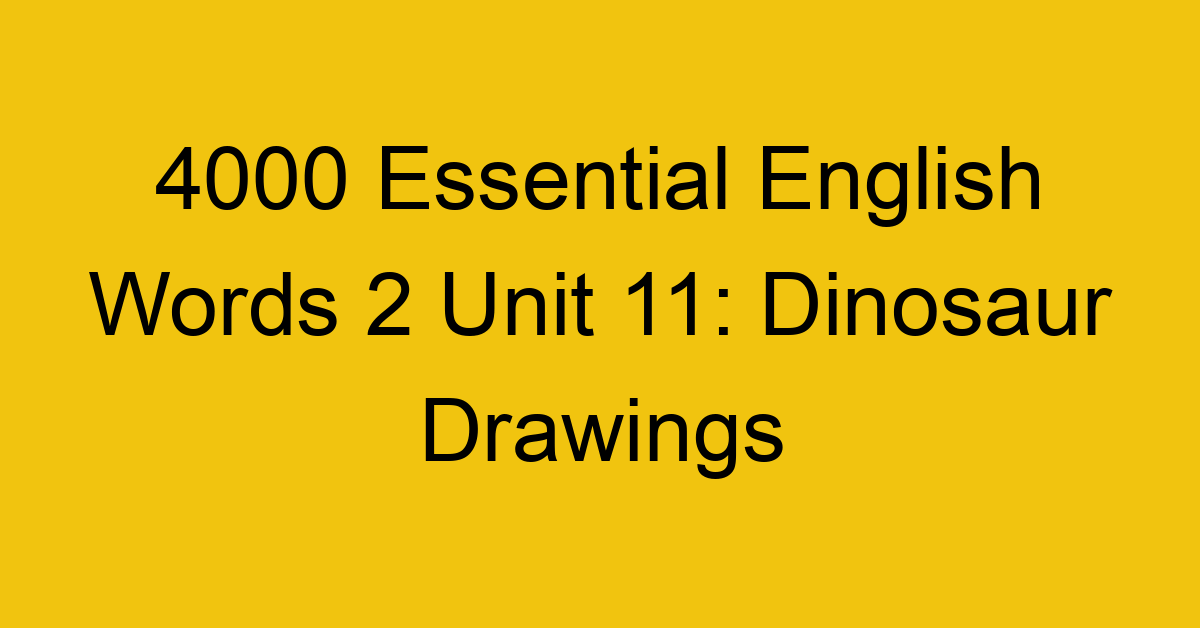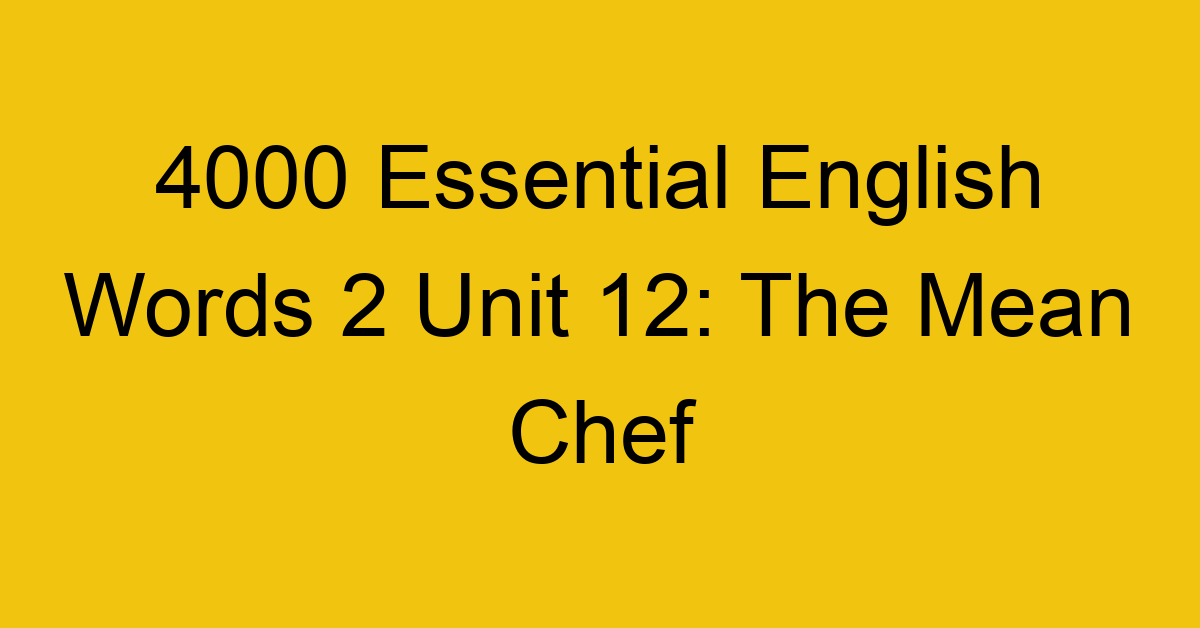4000 Essential English Words 2 Unit 9: The Tale of Bartelby O’Boyle
Congratulations - you have completed 4000 Essential English Words 2 Unit 9: The Tale of Bartelby O’Boyle.
You scored %%SCORE%% out of %%TOTAL%%.
Your performance has been rated as %%RATING%%
Your answers are highlighted below.
Word List
- admire [ədˈmaɪə:r] v.
To admire someone is to like them for what they do.
→ I admire my brother for his hard work. - aid [eɪd] v.
To aid someone is to help them when they need something.
→ The doctor aided the boy after his accident. - attempt [əˈtempt] v.
To attempt something is to try to do that thing.
→ I am attempting to learn English. - authority [əˈθɒːrətɪ] n.
Authority is the power that someone has because of their position.
→ The policeman has authority on the streets. - capital [ˈkæpɪtl] n.
A capital is an important city where a country’s leaders live and work.
→ We will visit the capital to learn about our government. - cooperate [koʊˈɒpəreɪt] v.
To cooperate is to work together to do something.
→ The students cooperated to clean up the classroom. - defend [dɪˈfend] v.
To defend someone or something is to protect them from attack.
→ The soldiers defended the town from the invaders. - destruction [dɪsˈtrʌkʃən] n.
Destruction is damage to something so bad that it can’t be fixed.
→ After the big fire, there was much destruction in the city. - disorder [dɪsˈɔːrdər] n.
Disorder is a lack of order, or a complete mess.
→ The teacher’s desk had many papers in disorder. - division [dɪˈvɪʒən] n.
A division is the act of making smaller groups out of a larger one.
→ The chart had six divisions which all had different colors. - enable [ɪˈneɪbl] v.
To enable a person is to make it possible for them to do something.
→ Having the key enabled us to open the door. - frustrate [frʌsˈtreɪt] v.
To frustrate is to prevent someone from fulfilling their desire.
→ The machine frustrated me because I could not fix it. - govern [ˈgʌvən] v.
To govern is to control the public business of a country, state, or city.
→ The United States is governed from the White House. - plenty [ˈplentɪ] n.
To have plenty of something is to have more than you need.
→ The school had plenty of books for the students to read. - relieve [rɪˈliːv] v.
To relieve someone is to make them feel less pain.
→ The medicine relieved the sick boy. - reputation [ˌrepjəˈteɪʃən] n.
Reputation is the opinion that people have about someone.
→ The doctor had a reputation for helping people. - royal [ˈrɔɪəl] adj.
Royal describes something that belongs to a king or queen.
→ The king sat upon the royal - slave [sleɪv] n.
A slave is a person who is not free and must work for someone else.
→ The slave worked very hard all day long. - struggle [ˈstrʌgəl] v.
To struggle is to fight against someone or something.
→ The kids struggled with each other for the toy. - stupid [ˈstjuːpɪd] adj.
When someone is stupid, they lack intelligence.
→ He said something stupid that made everyone angry at him.

